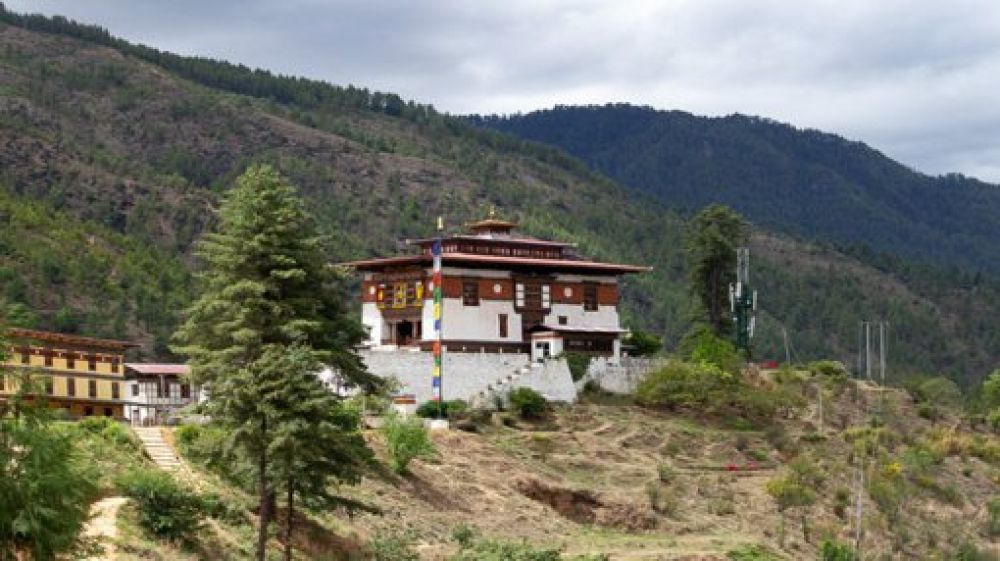

Dechen Phodrang, which translates to "Palace of Great Bliss," is a historic monastery located in Thimphu, the capital city of Bhutan. Established in the 12th century as a fortress, it has played a significant role in the religious and cultural development of the country.
The site originally housed a statue of Shakyamuni Buddha that dates back to the 12th century. Over the subsequent centuries, the site grew in spiritual significance and was turned into a monastery in the 18th century by the 12th Desi, Je Sherub Wangchuck.
Dechen Phodrang went through several transformations and renovations with different rulers enhancing the monastery's structure and religious significance. The monastery now houses a monastic school that trains young monks in the Drukpa Lineage of the Kagyu school of Tibetan Buddhism.
Tourism in Bhutan as a whole has been primarily shaped by its policy of "High Value, Low Impact", which aims to attract responsible travelers and protect the country's pristine environment and rich culture. Despite the fact that Dechen Phodrang does not generally attract the same level of international attention as the iconic Tiger's Nest Monastery (Paro Taktsang), it remains an important site for those interested in the deep spiritual heritage of Bhutan.
Dechen Phodrang offers tourists a unique opportunity to observe monastic life and admire Bhutanese religious art. Among the treasures housed in the monastery are a number of old Bhutanese paintings and an image of Shakyamuni that dates back to the 12th century, mentioned before as the starting point for the site's religious importance.
For tourists, visiting Dechen Phodrang provides insightful glimpses into monastic life. It also offers stunning views over Thimphu city, further enhancing its appeal as a culturally and historically significant destination.
Access to Dechen Phodrang may be subject to certain restrictions, in keeping with Bhutan's careful management of tourism and respect for religious practices. As such, tourists are advised to check with local authorities or their tour operators about the best times to visit and any cultural considerations to take into account.
The latest trends in Bhutanese tourism reflect a growing global interest in sustainable travel. Bhutan is at the forefront of this movement, with its strong environmental protection policies and the emphasis on cultural preservation. Experiences that allow for personal growth, learning, and closer connection to nature and spirituality are particularly popular among international tourists.
Amid the global health crisis, Bhutan has also focused on digital engagement, connecting with potential travelers through virtual tours and other online experiences. As travel normalizes, Bhutan is likely to continue its balance of promoting thoughtful tourism while safeguarding its cultural integrity and natural beauty.
As a visitor to Dechen Phodrang and Thimphu, one can expect an immersive experience that honors Bhutan's ethos of sustainable travel and cultural respect. Due to the government's strict tourism policies, all visitors are encouraged to plan their trip with a registered Bhutanese tour operator to ensure a visit that is both fulfilling and responsible.